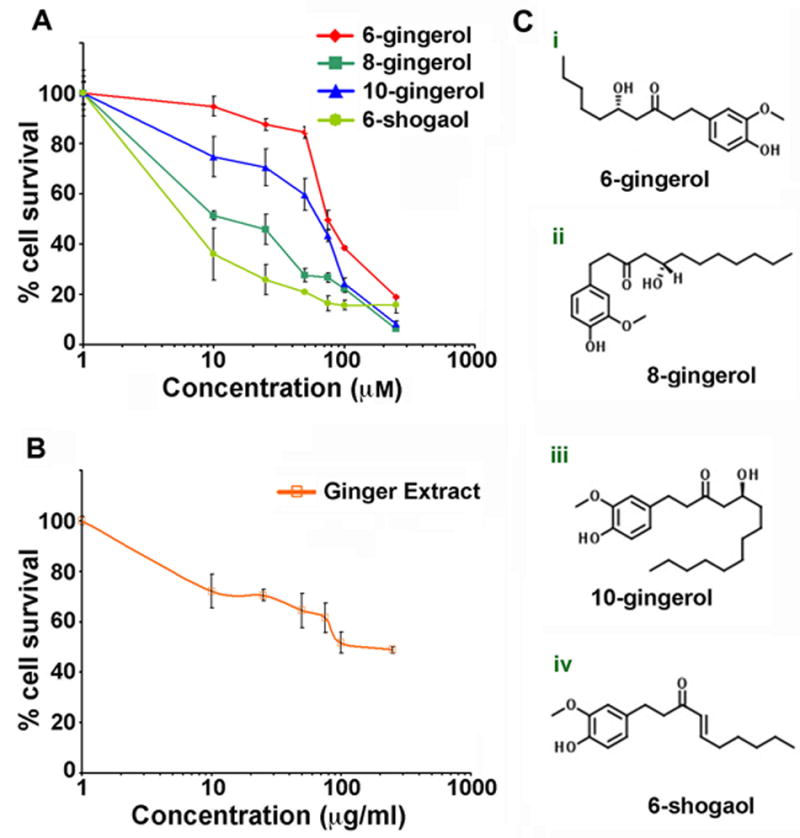Figure 1.

Ginger extract (GE) and ginger phytochemicals inhibit proliferation of prostate cancer cells. PC-3 cells were treated with gradient concentrations at (A) 1, 10, 25, 50, 75, 100 and 250 μM for 6G (0.29, 2.94, 7.36, 14.72, 22.07, 29.43, 73.58 μg/ml), 8G (0.32, 3.22, 8.06, 16.12, 24.18, 32.24, 80.61 μg/ml), 10G (0.35, 3.51, 8.76, 17.53, 26.29, 35.05, 87.63 μg/ml), 6S (0.28, 2.76, 6.91, 13.82, 20.73, 27.64, 69.09 μg/ml), and (B) 1, 10, 25, 50, 75, 100, 250 μg/ml of GE for 48h. The percent cell survival upon various treatments was measured using MTT assay, as described in Materials and methods. (A-B) Plot of percentage of cell survival versus concentrations used for determination of half-maximal concentration of growth inhibition (IC50). Data shown above represent the means of three independent experiments performed in triplicate, with standard deviations represented by vertical bars (p<0.05). (C) Chemical structures of ginger phytochemicals (i) 6-gingerol, (ii) 8-gingerol, (iii) 10-gingerol, (iv) 6-shogaol.
